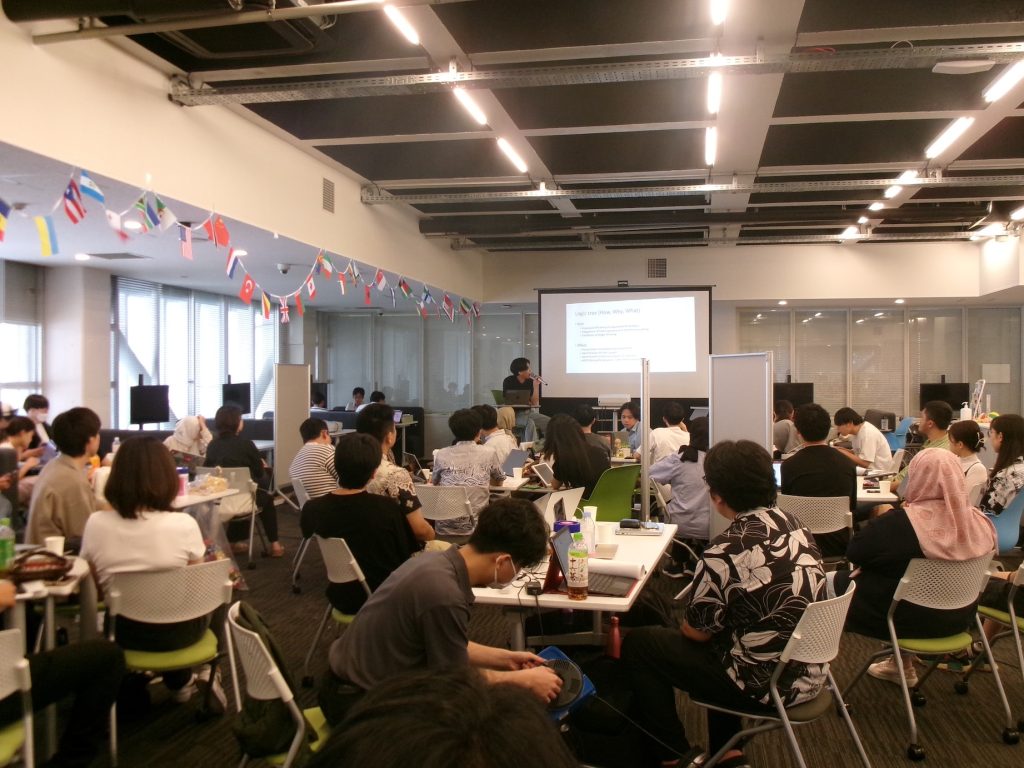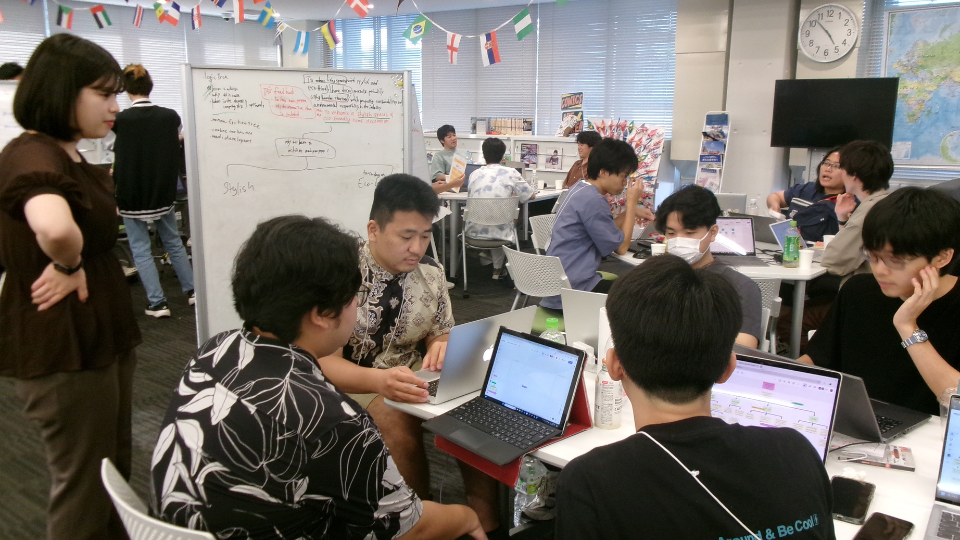Global Project-Based Learning (GPBL) 2024 officially ended on September 19, 2024. This collaborative initiative brought together students from three different universities—Institut Teknologi Bandung (ITB) Indonesia, Shibaura Institute of Technology (SIT) Japan, and Universiti Utara Malaysia (UUM) Malaysia, to hone their business ideas.
The program began in March 2024, when Japanese students came to Indonesia to help local startups solve the challenges they faced. The second phase continued in Japan, where students from Indonesia and Malaysia participated in project-based learning at the SIT Omiya campus, Saitama.
Manahan Siallagan S.Si., M.T., M.Sc., Ph.D, Director of the Big Data Analysis and Social Simulation Laboratory SBM ITB and one of the founders of GPBL, officially opened the second phase in Japan. In his speech, Manahan emphasized the importance of teamwork and cultural collaboration in achieving the program’s goals. He also expressed his hope that the program will continue to grow, targeting hundreds of participants in the future.
Unlike the first phase, students in the second phase were tasked with developing their business ideas, with the possibility of getting funding from banks or crowdfunding platforms for selected projects. Students from the three universities were divided into ten groups, each with 5 to 6 participants.
“This was an unforgettable experience. Every activity was very interesting and encouraged us to learn more despite the limited communication and short time. If there is an opportunity, I will participate again,” said Suryawijaya, an ITB student.
In this GPBL program, participants made three main presentations. The first presentation, Design Review 1 (DR 1), allowed each group to introduce their business idea and explain the value offered during the ideation stage. DR 2 involved presenting the business idea using the system engineering process. The final presentation, Final Day or Final DR, saw each group present their work to the bankers and other participants.
“It was a great opportunity to collaborate with people from different backgrounds and leverage our diverse strengths. We had a meaningful time while respecting each other’s differences. However, there is still room for improvement in our teamwork to create something more innovative,” said Mao Mori, a student from SIT Japan.
Throughout the 10-day event, participants brainstormed sessions using a systems engineering approach, guided by a Teaching Assistant from SIT.
“This is my first time hearing and learning about the systems engineering process. I have never studied the tools since I am not specifically studying systems engineering. However, with the help of my TA and friends, I have a good understanding of the concept. It has enriched my knowledge,” said Fish Ying, a participant from Malaysia.
SBM ITB Lecturer Yudo Anggoro, Ph.D, also welcomed the participants at the event’s opening and encouraged them to enjoy the learning opportunity and cultural exchange fully. Meanwhile, the host of the second phase, Prof. Manabu Ichikawa, emphasized the role of Japanese students in mentoring their counterparts from Indonesia and Malaysia and encouraged them to collaborate with residents to bring their projects to life.





